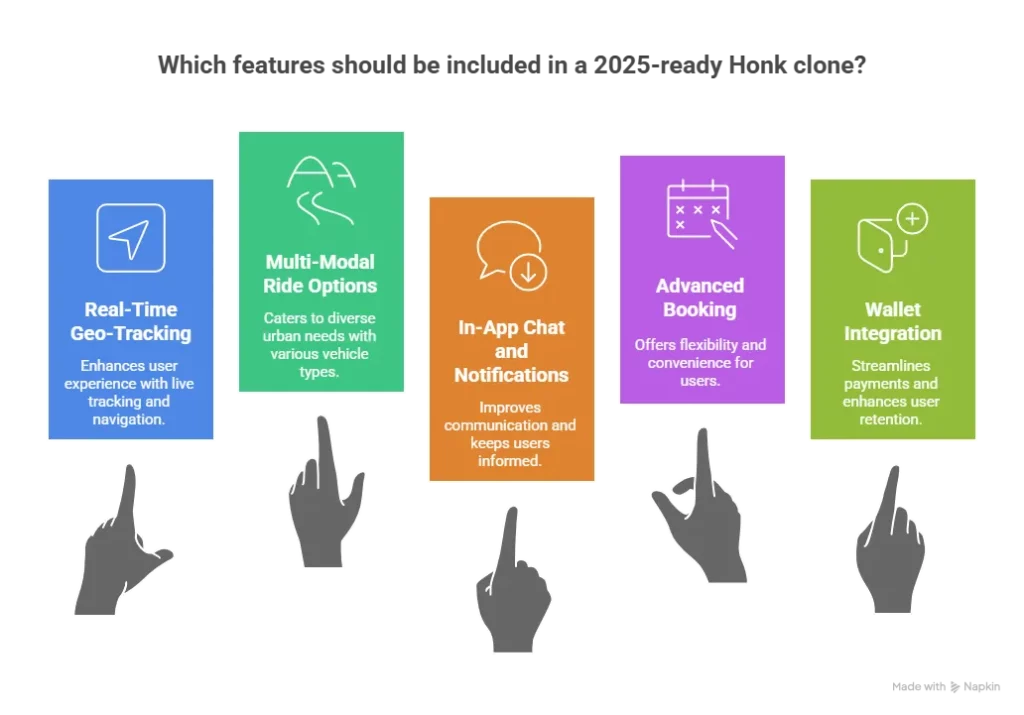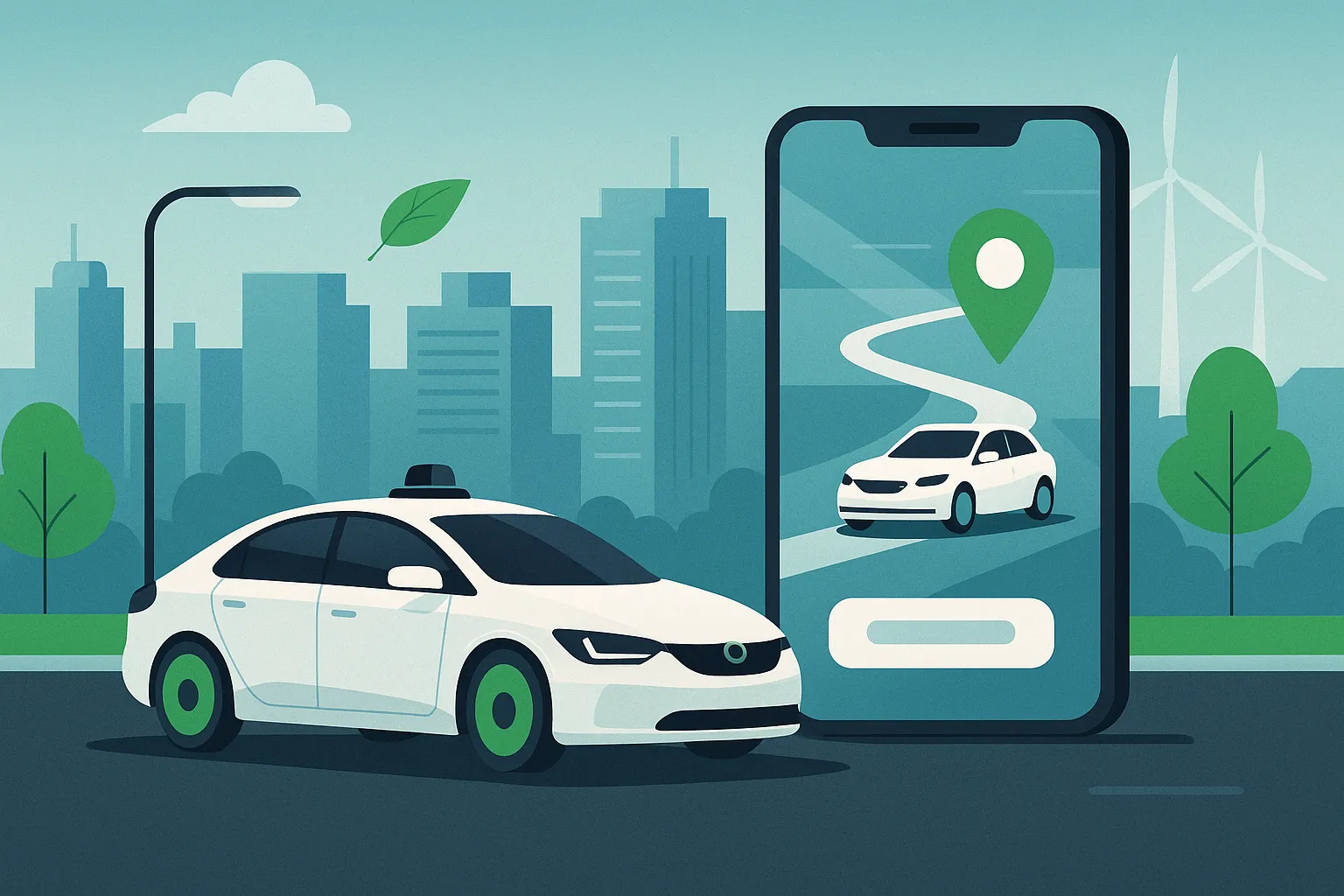Remember when ride-hailing used to be just Uber and Lyft? Those days are gone. In 2025, the space is wide open—and ripe for innovation. One platform that’s gaining buzz for all the right reasons is Honk, a ride-sharing and carpooling app built with flexibility, peer-to-peer logic, and hyperlocal appeal. If you’ve got your sights set on launching a mobility startup, a Honk Clone Scripts might just be your shortcut to getting on the road fast—without the bumps.
Let’s be clear: this isn’t just about cloning an app. It’s about capturing a proven use case and adapting it for your market, your audience, and your monetization strategy. Whether you’re targeting students, commuters, or an entire city, a ready-made Honk clone script lets you build, launch, and scale quickly—while keeping full control.
Why Honk Clone Scripts Are in Demand
Unlike legacy ride-hailing models that burn money on central logistics and driver acquisition, Honk introduced a peer-to-peer model that lets users schedule shared rides and split costs in real-time. It’s collaborative. It’s efficient. And most importantly, it appeals to today’s users who want sustainable, affordable transportation options without the corporate overhead.
Startups love this model because it:
- Reduces operational cost by decentralizing logistics
- Increases user engagement through ride-sharing features
- Offers flexible revenue models: subscriptions, booking fees, ads
- Is scalable for campuses, events, or even national rollouts
Read More : What is Honk App and How Does It Work?
Must-Have Features in a 2025-Ready Honk Clone Scripts

To be competitive in today’s ride-hailing space, your Honk clone script must include more than just driver-rider matchmaking. Let’s break down the essentials.
1. Real-Time Geo-Tracking and Navigation
Users expect to track drivers live. GPS integration with real-time ETAs, route optimization, and in-app navigation are core to the experience.
2. Multi-Modal Ride Options
From private rides and carpools to eco-friendly bike and scooter options, your clone should support multiple vehicle types for modern urban needs.
3. In-App Chat and Notifications
Riders and drivers should be able to communicate instantly with each other—without leaving the app. Push notifications for ride updates, delays, or schedule changes are critical.
4. Advanced Booking and Scheduling
Whether it’s daily commutes or event shuttles, users want to book rides in advance. Offer flexible time slots, recurring schedules, and calendar sync options.
5. Wallet Integration and Fare Splitting
Integrated wallet systems allow for pre-loading funds, tipping, and splitting fares between multiple riders. The smoother the payment process, the better your retention rate.
Cost Factors & Pricing Breakdown
Honk-Like Roadside Assistance & Towing Marketplace Development — Market Price
| Development Level | Inclusions | Estimated Market Price (USD) |
|---|---|---|
| 1. Basic Roadside Assistance MVP | User signup, service request flow, location detection, basic provider listing, job assignment, status tracking, and a simple admin panel. | $50,000 |
| 2. Mid-Level Towing & Assistance Platform | Web + mobile UI/UX, real-time provider matching, live tracking, pricing rules, notifications, payments, provider dashboards, and analytics. | $120,000 |
| 3. Advanced Honk-Level Platform | Nationwide coverage, fleet & contractor management, dynamic pricing, SLA tracking, insurance & enterprise accounts, automated dispatching, and enterprise-grade scalability. | $240,000+ |
These figures reflect the typical global investment required to build a roadside assistance and towing marketplace similar to Honk — including real-time dispatch, provider coordination, and large-scale operations.
Miracuves Pricing for a Honk-Like Platform
Miracuves Price: Starts at $15,999
This package delivers a complete roadside assistance marketplace foundation including customer request flows, real-time provider matching, dispatch & tracking, pricing configuration, payments, notifications, provider management, and a unified admin backend — designed for city-to-nationwide scale.
Note:
Includes full source code, backend setup, frontend integration, admin configuration, API connections, and deployment assistance — enabling you to launch a fully branded Honk-style platform with long-term flexibility.
Launch Your Honk-Style Roadside Assistance Platform — Contact Us Today
Delivery Timeline for a Honk-Like Platform with Miracuves
The typical delivery timeframe is 30–90 days, depending on:
- Geographic coverage and provider density
- Dispatch & routing complexity
- Pricing, SLA, and enterprise account features
- Branding & UI/UX customization
- Payment gateway and communication integrations
- Additional analytics or reporting modules
Tech Stack
Built using a JS-based architecture, ideal for real-time location tracking, scalable dispatch systems, modular integrations, and high-availability on-demand service marketplaces.
Security & Safety: Non-Negotiables in Ride-Sharing
No one’s getting into a stranger’s car unless they feel safe—and that’s your app’s responsibility. Here’s what a proper Honk clone script must offer:
- Verified driver onboarding with document uploads and approval workflows
- Emergency SOS buttons for riders and drivers
- Ride tracking links sharable with contacts
- Ratings, reviews, and report mechanisms
- GDPR-compliant data privacy systems
Cut corners here and you risk both lawsuits and lost users.
Customization Features That Set You Apart
A generic ride app isn’t enough. In 2025, differentiation is everything. Here’s how the best Honk clones add flavor:
- Custom branding and theming for local identity
- Community-based features like “trusted circles” or gender-specific rides
- Carbon footprint tracking for eco-conscious users
- Gamification with ride points, badges, or loyalty rewards
- Event-based ride groups for festivals, conferences, and schools
Tailoring your clone to a niche audience often brings better results than trying to copy big names.
Read More : Reasons startup choose our Honk clone over custom development
Who Should Launch a Honk Clone?
If your startup idea involves moving people from point A to B, this model’s got your name on it. Use cases include:
- College campuses running internal transportation
- Co-living and smart city developers integrating mobility
- Ride-hailing startups in tier-2 or underserved cities
- Green mobility companies focusing on electric rides
- Event organizers needing pop-up transportation systems
Whether you’re bootstrapping or VC-backed, a Honk clone lets you test, iterate, and launch faster.
Mobility Tech Trends in 2025 That Influence Clone Scripts
You’ll need to build with the future in mind. Here’s what’s trending:
1. AI-Based Ride Matching
More clone scripts are including smart algorithms that pair users based on location, routes, and even travel history—for better shared ride matching.
2. Driver Gamification Dashboards
To improve retention, drivers are being rewarded with scores, bonuses, and achievements based on punctuality, ratings, and trip volumes.
3. Voice-Controlled Interfaces
With mobile assistants becoming more integrated, top apps now support voice commands for booking, cancelling, or navigating trips.
Final Thoughts
The market for ride-sharing apps isn’t saturated—it’s segmented. With users demanding localized, affordable, and safe transportation, launching a Honk clone in 2025 could be your ticket to real traction. Just remember: success doesn’t come from copying features—it comes from solving real problems faster and smarter than your competitors.
At Miracuves, we help innovators launch high-performance app clones that are fast, scalable, and monetization-ready. Ready to turn your idea into reality? Let’s build together.
Still have questions about Honk Clone Scripts in 2025? Let’s clear them up.
What is a Honk clone script?
It’s a ready-made ride-sharing app solution that replicates Honk’s features, allowing you to launch your own ride-hailing or carpooling platform without building from scratch.
What features are included in a typical clone?
Standard clones include real-time tracking, driver-rider matching, fare estimation, and scheduling. Advanced ones offer route optimization, fleet dashboards, and safety features.
Can I launch it in one city first?
Yes. Most scripts are modular and scalable, so you can start small with geo-fencing and expand city by city as you grow.
How much does a Honk clone cost in 2025?
Prices Starts at $15,999 for full-featured, enterprise-grade clones with advanced modules and customization.
Is it safe for users?
Only if your script includes strong security features like document verification, ride tracking, and SOS buttons. Always verify what the vendor includes.
Who is the ideal audience for this platform?
Commuters, students, eco-conscious travelers, and communities in need of localized transport solutions are all excellent target users for a Honk-style platform.








